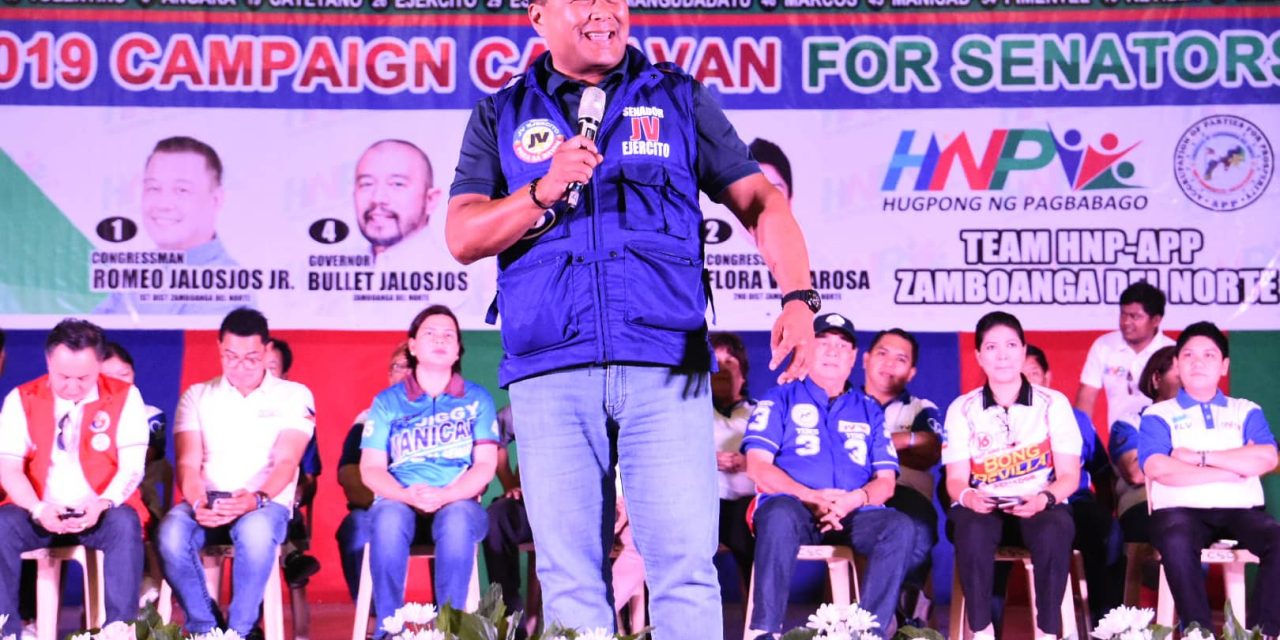REELECTIONIST Senator JV Ejercito has assured that the dilemma of lack of doctors and medical staff in far-flung communities, towns, and provinces would finally be addressed once the Universal Health Care (UHC) law is implemented.
Ejercito, now popularly known as “Mr. Healthcare” for spearheading the UHC law, said almost 6 out of 10 deaths in the Philippines are not medically attended, or six out of 10 Filipinos die without seeing a doctor or health professional.
He said that now, because of the law, the doctor to population ratio in underserved areas, mostly geographically isolated and disadvantaged communities, would narrow down as the UHC required new doctors and graduate of other medical courses from State Universities and Colleges to serve for at least three (3) full years in far-flung areas that “rarely see doctors.”
“All graduates of allied and health-related courses who are recipients of government-funded scholarship programs shall be required to serve in priority areas in the public sector for at least three (3) full years, with compensation, and under the supervision of the DOH (Department of Health),” Ejercito said, citing section 26 of the law’s chapter 5.
The law also provides that even graduates of allied and health-related courses from private schools would be encouraged to serve.
“These doctors and medical personnel will have compensation. Kaya iyung dati na hindi nararating ng mga doctor at nurse, o kulang sa doktor o nurse na mga komunidad, bayan, o probinsiya, sa UHC, kapag ipinatupad na ang UHC law, malalagyan na sila para maserbisyuhan ang pangangailangang pangkalusugan ng ating mga kababayan,” he said.
The UHC also allows additional incentives for health professionals who want to serve longer than their required 3-year “tour of duty.”
Ejercito said the law tasked the DOH to coordinate with the Commission on Higher Education to ensure effective implementation of the Human Resource for Health provisions of UHC.


